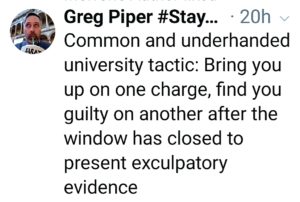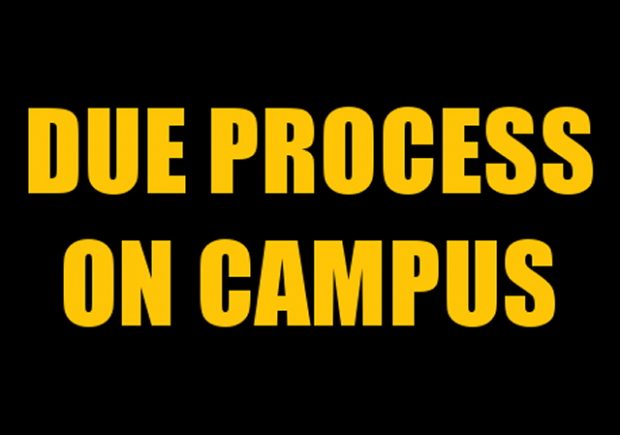GOOD NEWS For Male Grad. Federal Judge Reverses Ruling. Gender Bias Claim Against University of New Mexico Moves Forward
A fourth-year doctoral candidate was wrapping up his dissertation when he became the subject of a sexual misconduct investigation rife with gender bias and lacking in due process. Last month U.S. District Judge James Browning refused to dismiss Title IX and 14th Amendment claims by “J. Lee” against the University of New Mexico for depriving him a degree.
Judge Browning’s 127 page ruling said UNM “prioritized administrative efficiency over a rigorous fact-finding process” and left the accused student, J.Lee, with “no meaningful opportunity to be heard.” It was a reversal of fortunes for the university, which initially convinced Browning to dismiss Lee’s gender bias claim. The judge “amended” that order from last summer in his ruling last month, citing “recent opinions from [federal] Courts of Appeals” and his own “more intense study” of the issue. Browning cited a 2019 ruling by the 7th U.S. Circuit Court of Appeals against Purdue University that helped shape his reversal on Lee’s Title IX claim. While the judge said the Obama administration’s notorious 2011 “Dear Colleague” letter on campus sexual assault was not enough “standing alone” to show UNM’s anti-male bias, it is “one piece of the puzzle” in Lee’s favor. Other alleged puzzle pieces that may signal of anti-male bias: the hostile attitude toward Lee from the university and individual defendants, how UNM disregarded its own internal procedures, its acceptance of the “allegedly illogical, contradictory, and inconsistent account” by his accuser “C.H.,” and its decision to ignore evidence “exculpating” the accused student.
 For instance, Student Conduct Officer Megan Chibanga told Lee that he couldn’t present evidence at the sanctions hearing or challenge the probable-cause finding. Under the impression that nothing new was to come up, Lee was blindsided when Chibanga asked him questions about underaged drinking – a charge mentioned in neither the preliminary nor final determination. The drinking violation eventually factored into his expulsion. Under due process, the university must “allow Lee to fully argue any new issues, such as underaged drinking, that were raised at his sanctioning hearing and later constituted part of his expulsion’s justification,” Browning ruled. The judge also noted that the university treats accused students better in cases not involving alleged sexual misconduct, providing them an “evidentiary hearing.” This raises questions about the fairness of Lee’s proceeding…Browning said the university’s actions present “significant risks of erroneous deprivation” to Lee. He was deprived a “meaningful opportunity to present” his response to the drinking allegations because he was not given notice of them, and denying him the opportunity to bring new evidence “appears to conflict” with the university’s procedures, according to the judge.
For instance, Student Conduct Officer Megan Chibanga told Lee that he couldn’t present evidence at the sanctions hearing or challenge the probable-cause finding. Under the impression that nothing new was to come up, Lee was blindsided when Chibanga asked him questions about underaged drinking – a charge mentioned in neither the preliminary nor final determination. The drinking violation eventually factored into his expulsion. Under due process, the university must “allow Lee to fully argue any new issues, such as underaged drinking, that were raised at his sanctioning hearing and later constituted part of his expulsion’s justification,” Browning ruled. The judge also noted that the university treats accused students better in cases not involving alleged sexual misconduct, providing them an “evidentiary hearing.” This raises questions about the fairness of Lee’s proceeding…Browning said the university’s actions present “significant risks of erroneous deprivation” to Lee. He was deprived a “meaningful opportunity to present” his response to the drinking allegations because he was not given notice of them, and denying him the opportunity to bring new evidence “appears to conflict” with the university’s procedures, according to the judge.
The university is facing other due process lawsuits, by a suspended professor and another accused student, filed less than a week apart in January.
thecollegefix.com-Pease

